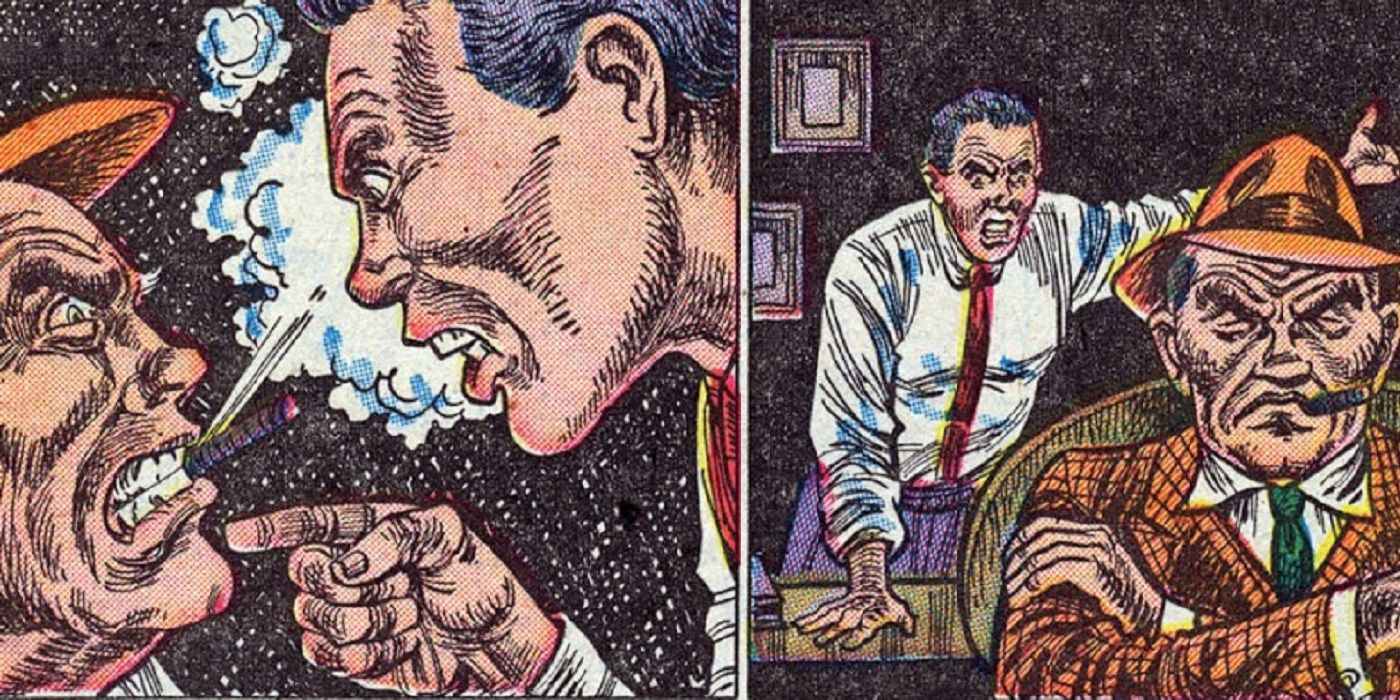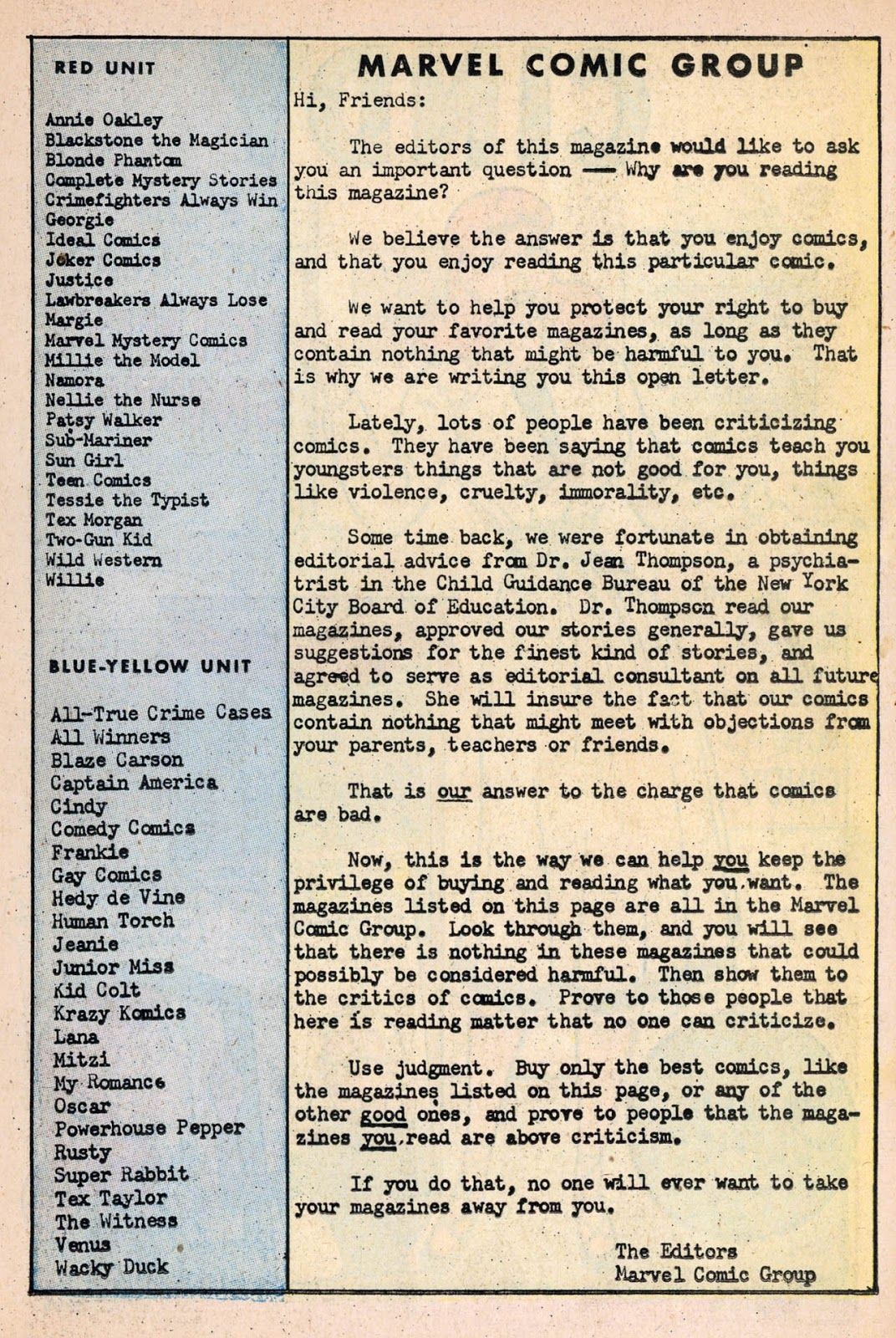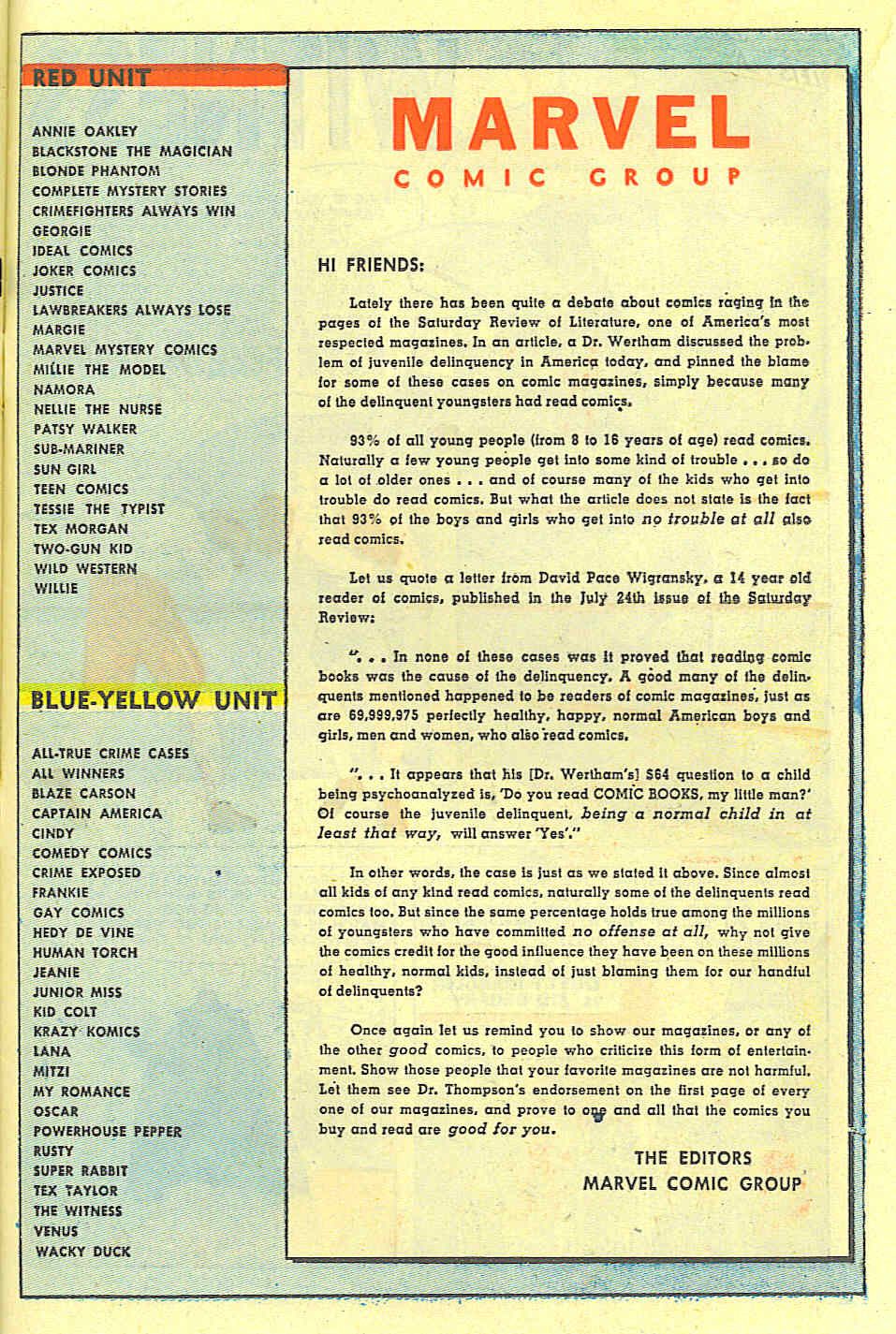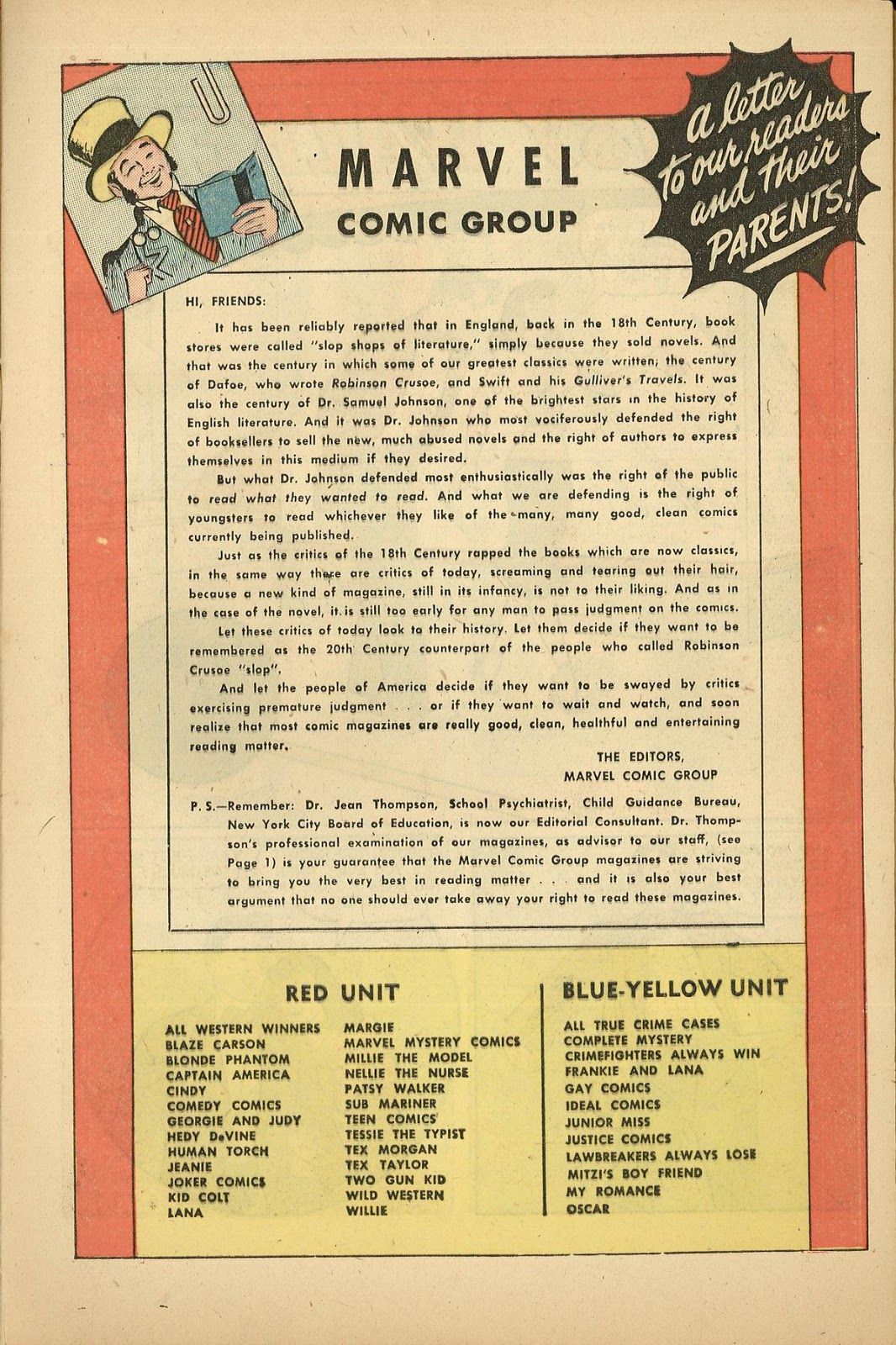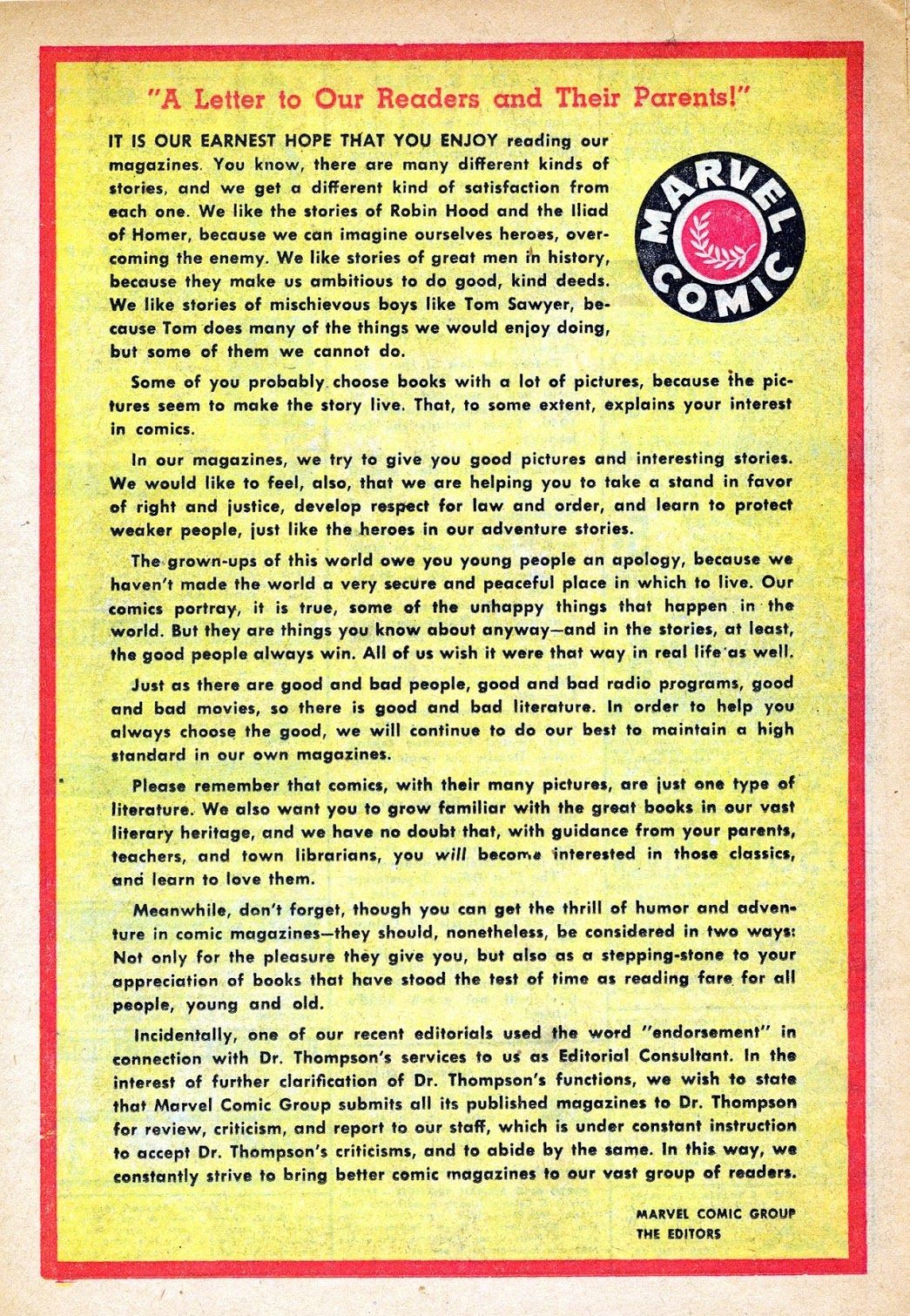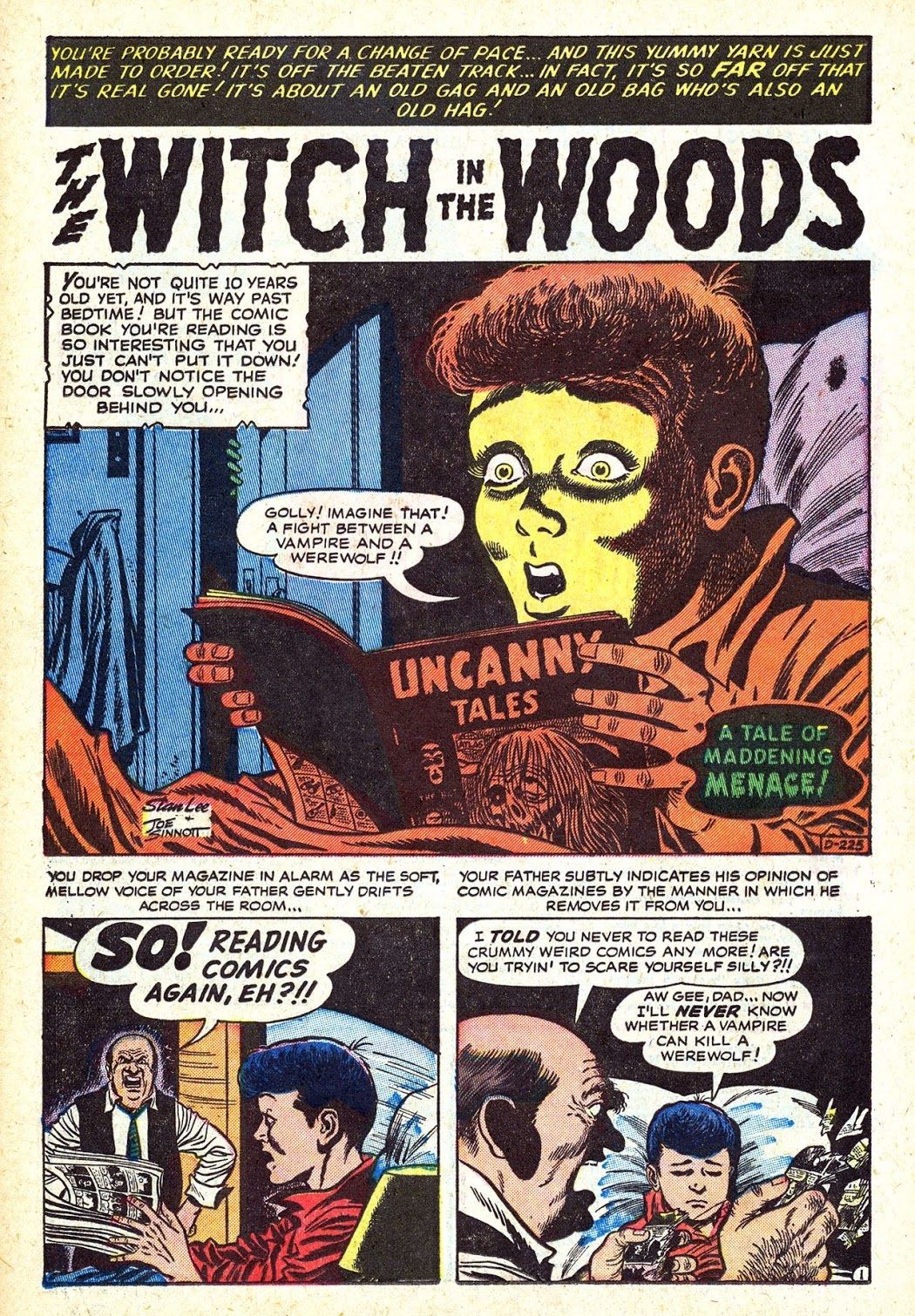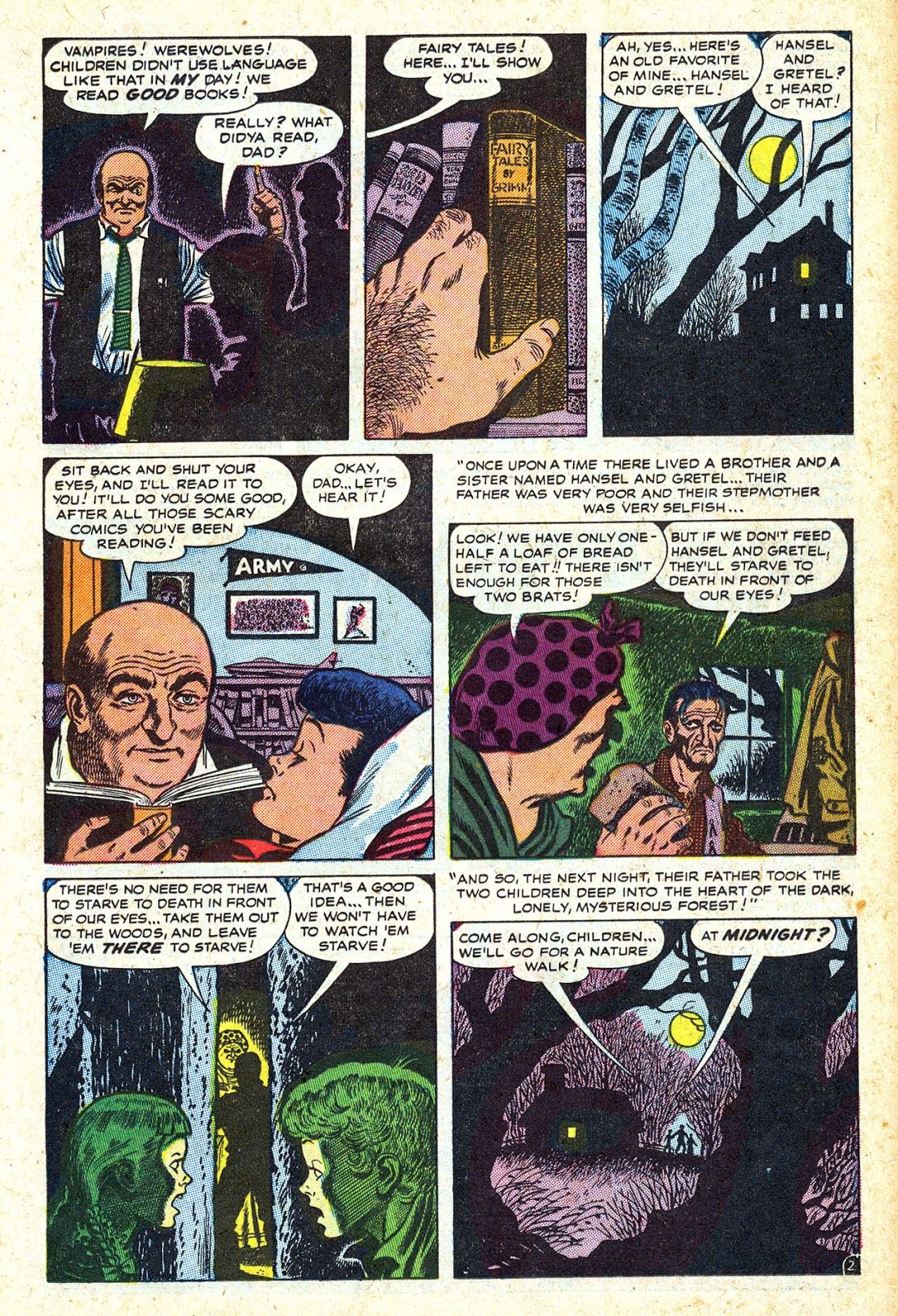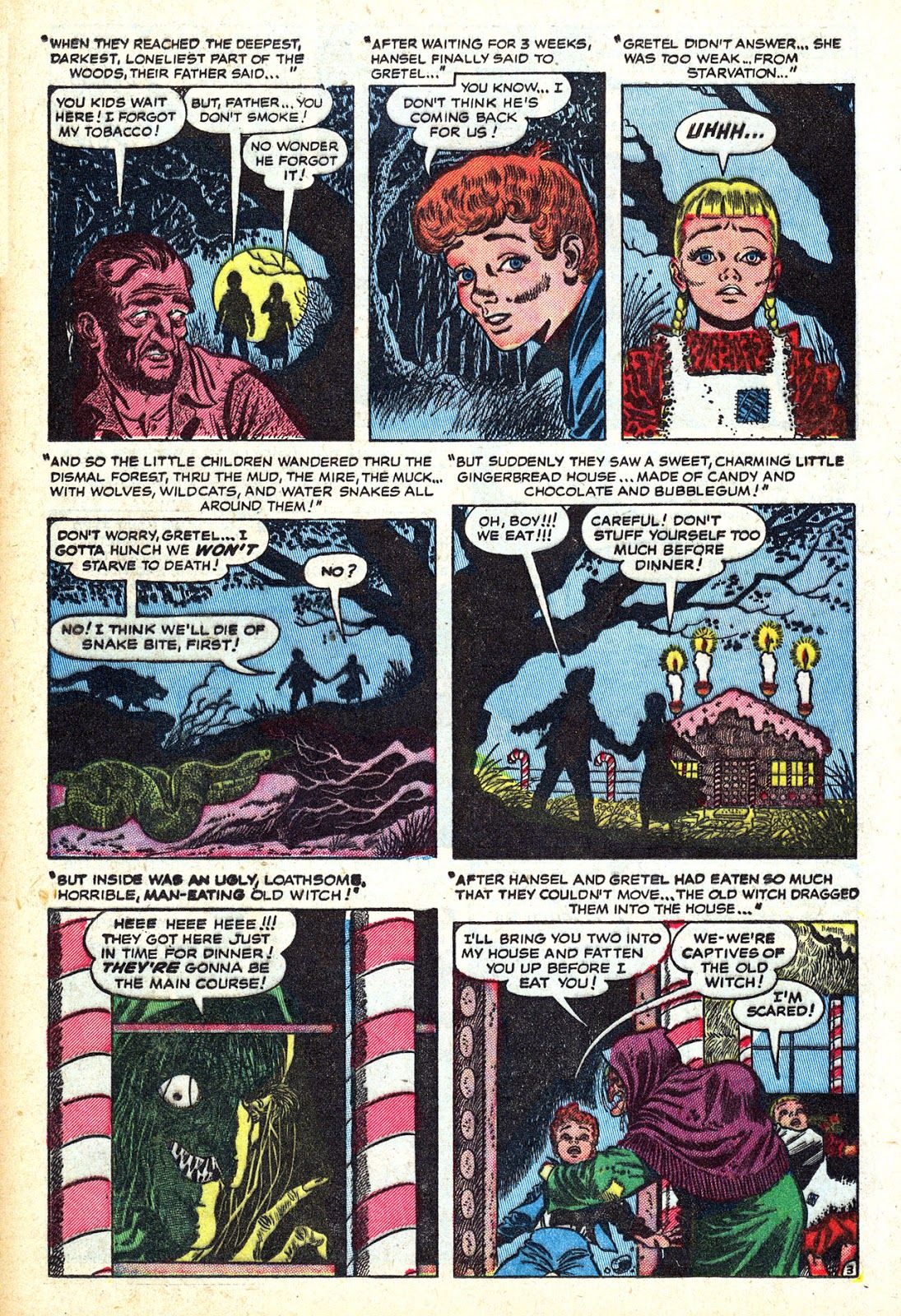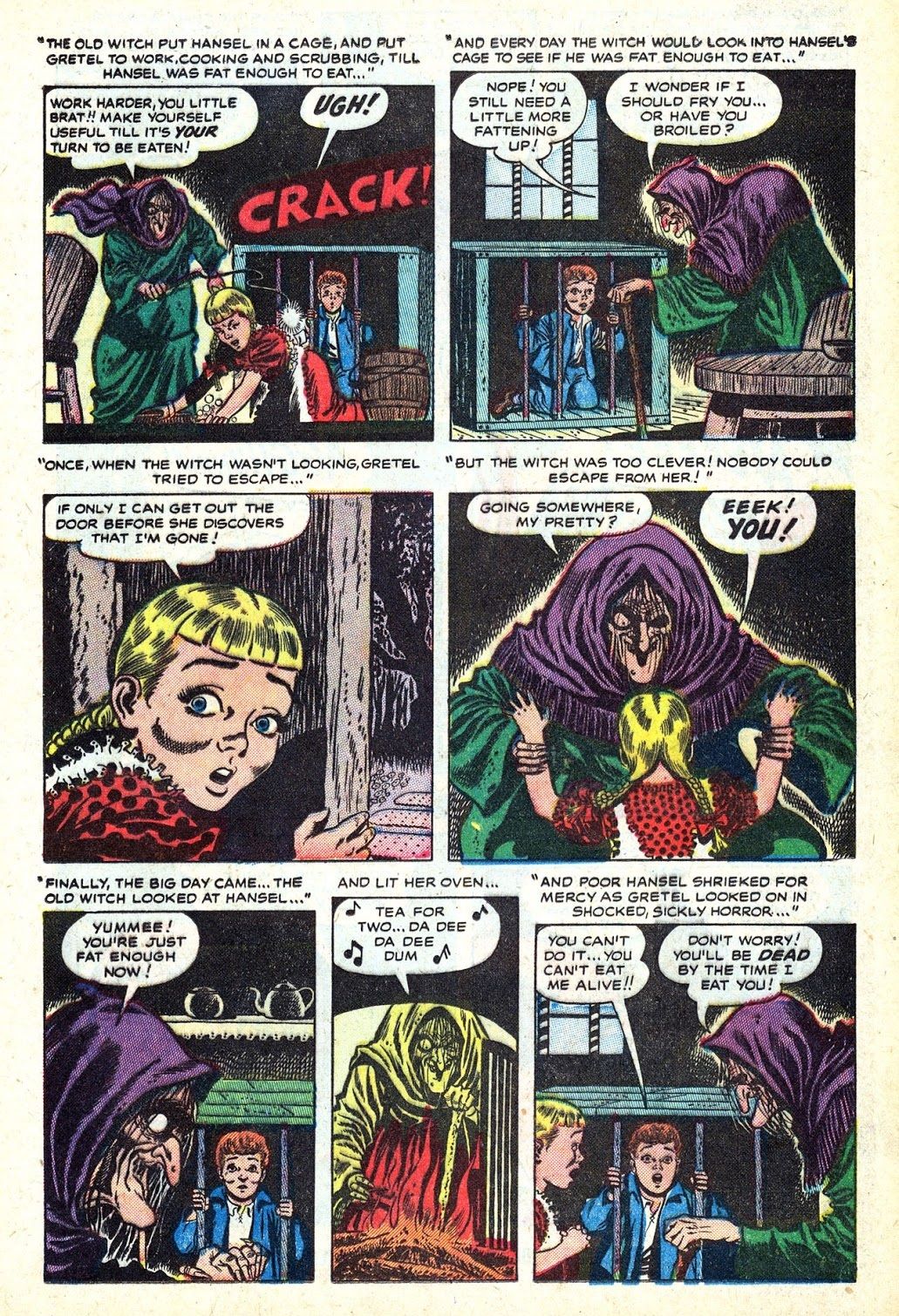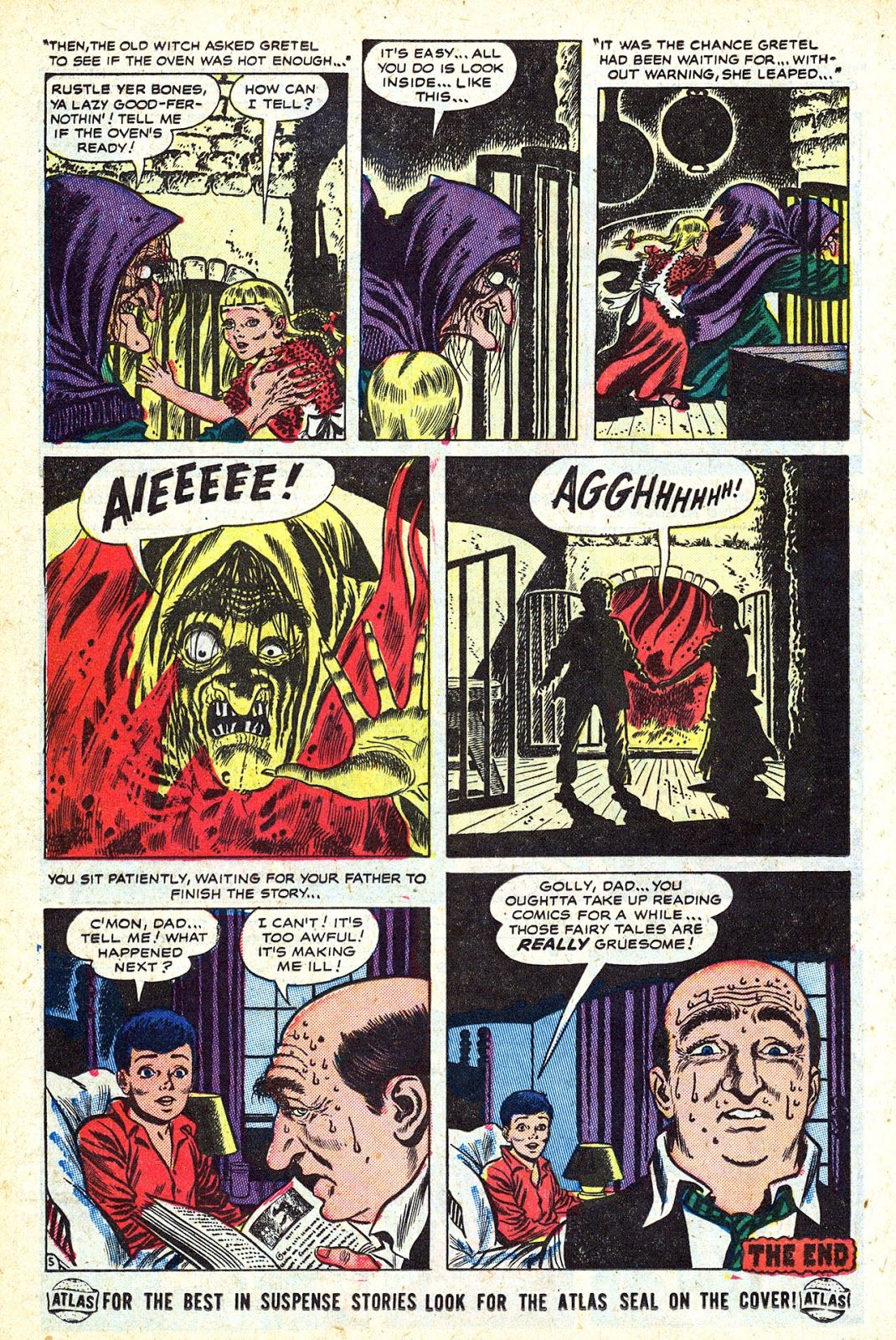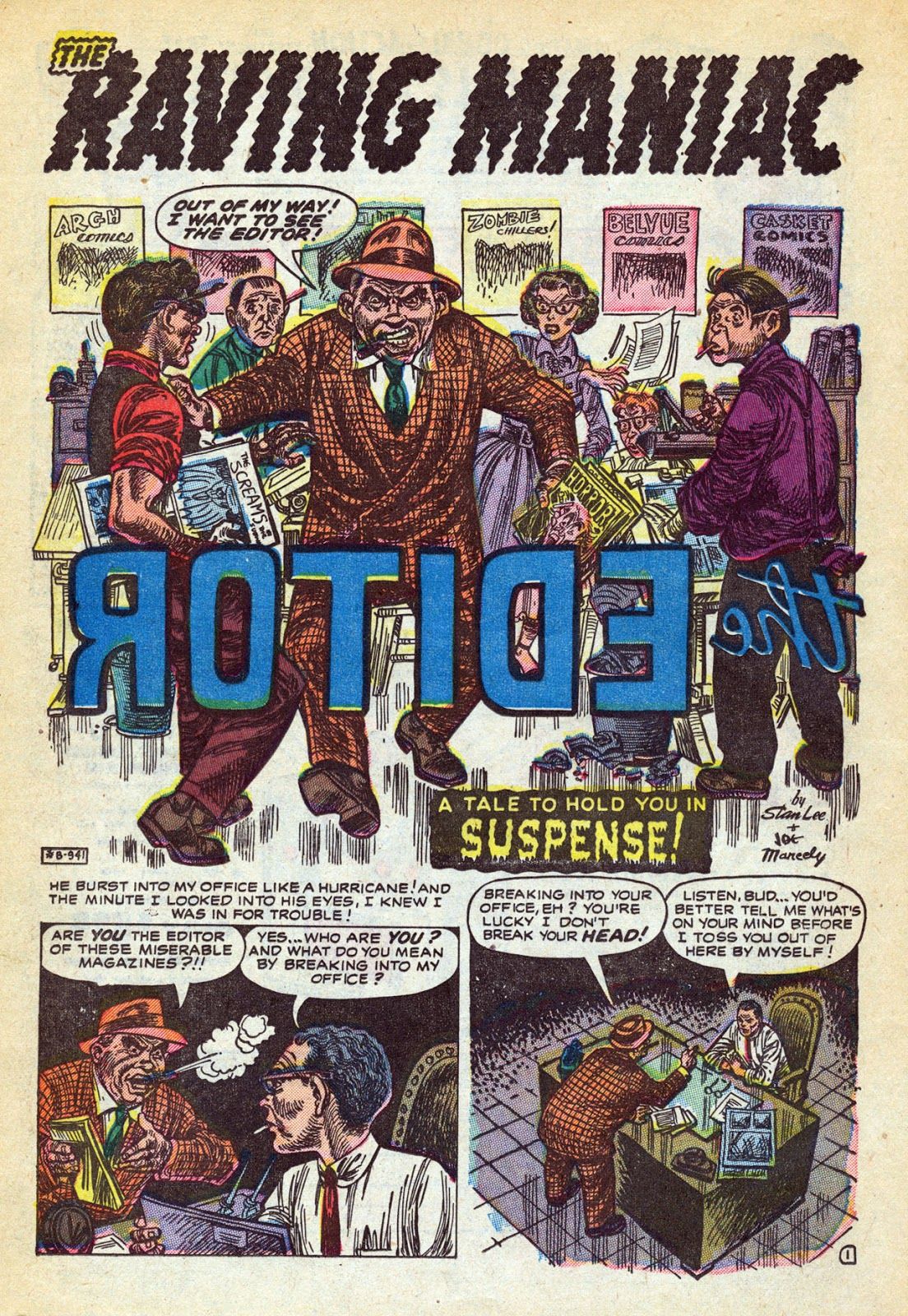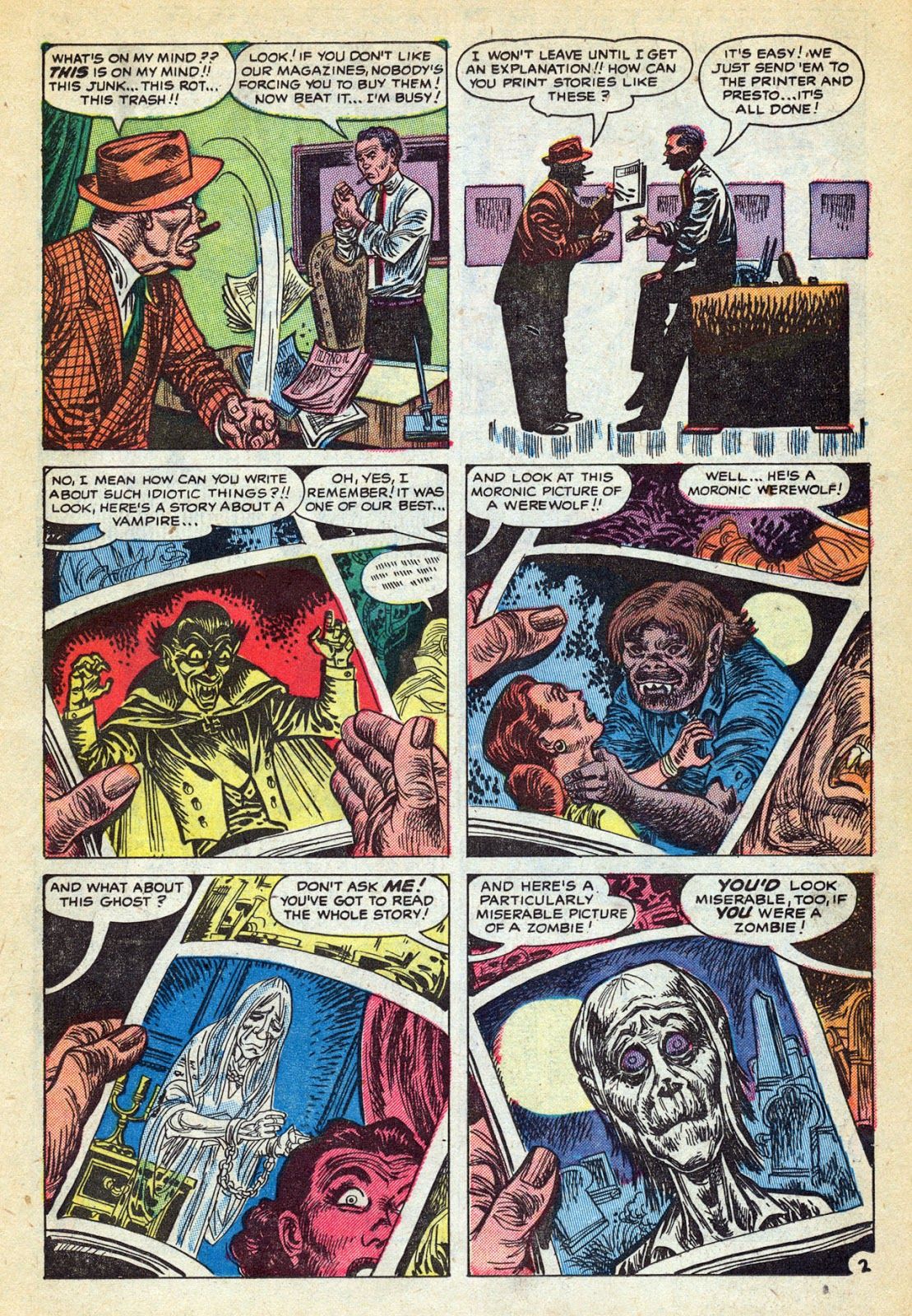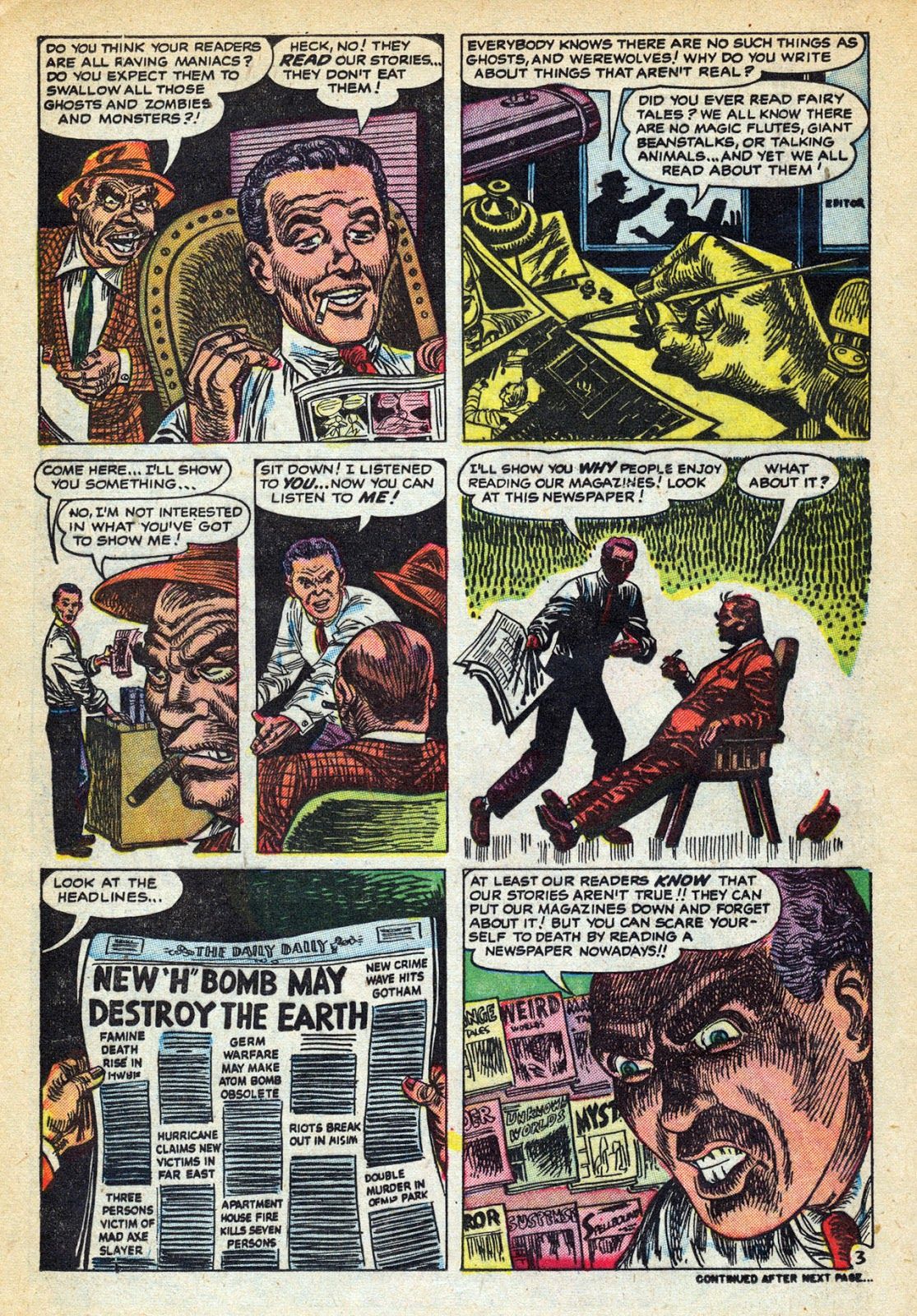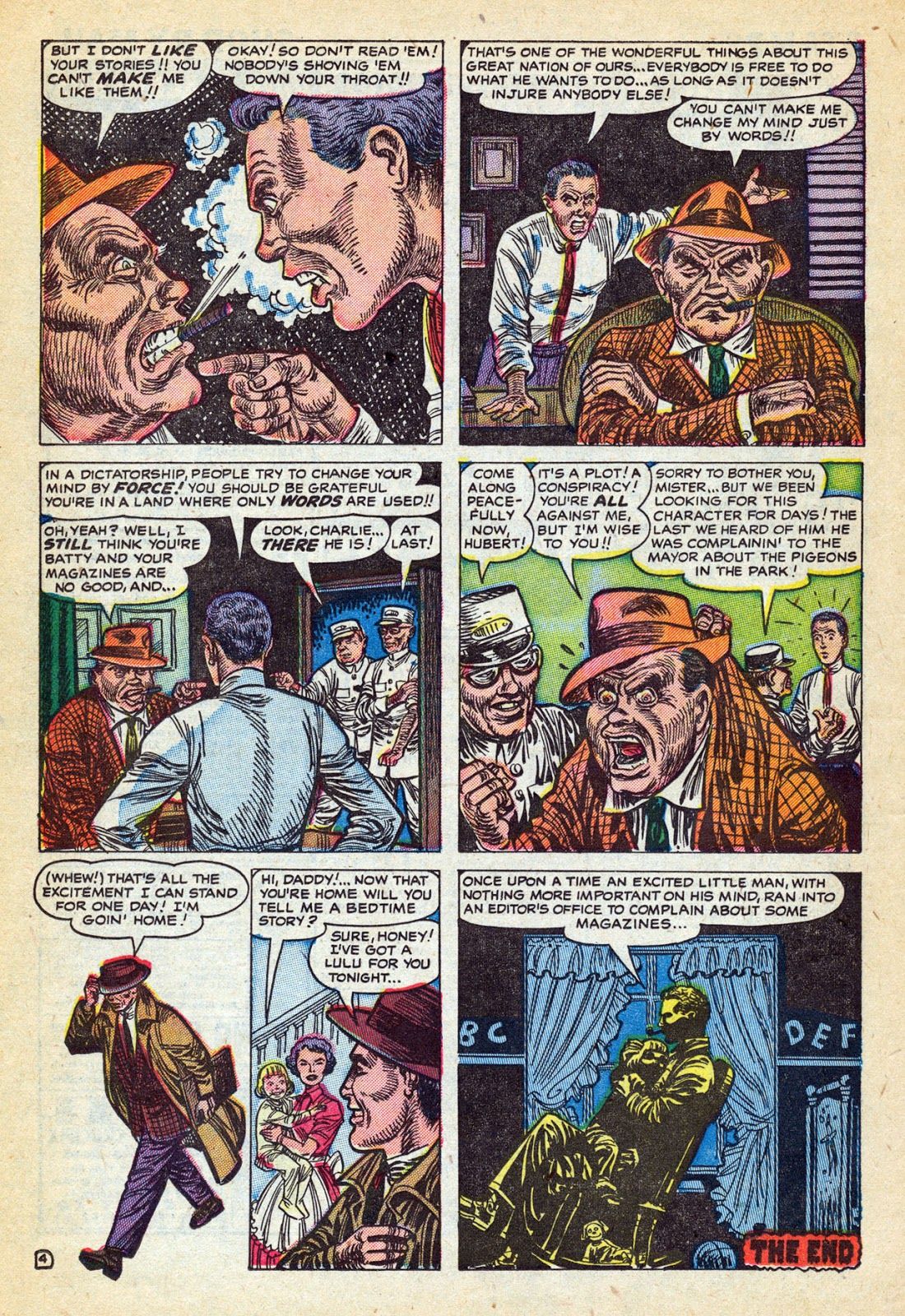I will continue to celebrate Stan Lee's legacy in comic books (and more) with this series, The Life and Times of Stan Lee.
Throughout his life, Stan Lee was a vocal proponent of the Freedom of Speech and as it turned out, he had a very prominent opponent on that topic during the late 1940s and early 1950s in the person of Fredric Wertham, the infamous psychiatrist behind The Seduction of the Innocent. Rather than taking Wertham's attacks on comics quietly, Lee did a number of awesome protests in the pages of Marvel Comics (then called either Timely Comics or Atlas Comics) from editorials to comic book spoofs of Wertham.
RELATED: How Stan Lee Became Synonymous With The 'Marvel Method'
In case you are lucky enough to not be familiar with the work of Fredric Wertham, he was a New York City psychiatrist who worked with juvenile delinquents and soon became an expert in the field. The problem with his work is that as the years went by, he became convinced that a significant cause of juvenile delinquency was, well, comic books. You see, most juvenile delinquents read comic books and thus, said delinquency must have a connection, right? If you're above the age of eight, you likely understand how non-existent that logic is, but hey, for whatever reason, this stuff got him a lot of notice beginning in the late 1940s, when he began to get mainstream attention. An article on Wertham's anti-comic book views appeared in the well-respected Collier's magazine. Then Wertham himself wrote a scathing anti-comics article in the Saturday Review of Literature. You might not think that that would be a big deal, but here's the problem, Wertham's Saturday Review of Literature article was then reprinted and abridged in Reader's Digest! Reader's Digest is obviously still around today and it is still a popular digest magazine, but its influence pales compared to how big of a deal it was back in the mid-20th Century. So now Wertham's views were VERY public.
Over the course of late 1948 and throughout 1949, Stan Lee responded to the increasing popularity of Wertham's views about comic books in a series of editorials in every comic released by Marvel Comics (whatever the company was being called back then) at the time.
What is fascinating about these editorials is that you can flat out see Lee's exasperation as the topic that he initially is pretty dismissive of keeps getting more and more attention and thus Lee has to soften his position a bit, until he is basically saying, "Okay, there might be some bad comics out there, but WE'RE good comics!"
Things seemed to cool down a bit as the main type of comics that Wertham had turned the public on, crime comics, had fallen a bit by the wayside as the 1950s began, with horror comics and westerns becoming more popular.
Of course, things were about to heat up for the anti-comics movement and Stan Lee was ready to respond with a pair of comic book stories that go right at Wertham and Wertham's message.
Page 2: [valnet-url-page page=2 paginated=0 text='He's a maniac!']
Fredric Wertham's anti-comics campaign took a big step forward with the release of his 1954 book, Seduction of the Innocent (which was filled with weak excuses for science to prove what Wertham wanted them to prove)...
However, even before Wertham's book came out, he had ratcheted up his anti-comic rhetoric, which is why there just so happened to be a Congressional Committee on comic books right around the same time Wertham's book came out since, with or without the book, the public was really turning on comic books during this period.
In his 2002 auto-biography, Stan Lee wrote of Wertham:
To me, Wertham was a fanatic, pure and simple. I used to debate with him, which was fun because I usually won - but that was rarely publicized. He once claimed he did a survey that demonstrated that most of the kids in reform schools were comicbook readers. So I said to him, "If you do another survey, you'll find that most of the kids who drink milk are comicbook readers. Should we ban milk?" His arguments were patently sophistic, and there I'm being charitable but he was a psychiatrist so people listened.
Now, as I addressed in an old Comic Book Legends Revealed, Lee puffed up his history a bit with regards to his actual interactions with Wertham, but what is funny about that is that Lee's actual actions against Wertham were notable in and of themselves.
RELATED: How Stan Lee Helped Create the Modern Superhero Universe
There are two famous anti-Wertham comic books that Marvel released in 1953. I'll actually go out of chronological order, because the earlier one is a lot cooler than the later one.
The later one appeared in Menace #7, in a story by Stan Lee and Joe Sinnott. The basic idea of the story was one of the popular debates against the anti-comics hysteria, which is that comic books are no more violent than popular fairy tales and no one is running around trying to ban people from telling the story of Hansel and Gretel, right?
The earlier one, though, appeared in the final issue of Suspense (#29). Written by Lee and drawn by Marvel's superstar artist of the era, Joe Mannely (had Maneely not tragically died in the late 1950s, he would likely have been a major part of the Marvel Age of Comics in the 1960s). In it, Lee writes himself into the comic where he gets to essentially talk directly to Wertham, via a Wertham substitute character and Lee just TEARS INTO the Wertham substitute...
Man, that is so satisfying to read.
In the 1960s, as Marvel was becoming more popular and Lee, himself, began to become a famous face of the comic book industry, Lee did a number of anti-Wertham discussions. Of course, this was over a decade after Marvel and the other comic book companies caved in and agreed to a Comics Code to keep their content in line and to keep government oversight out of the comic book industry.
Still, it is nice to see Stan keep up his anti-censorship views even long after there was any direct threat to comic books like there was in the early 1950s.
I'm sure you all have a lot of things that you'd like to see me cover regarding Stan Lee, so if you have any ideas, drop me a line at brianc@cbr.com

